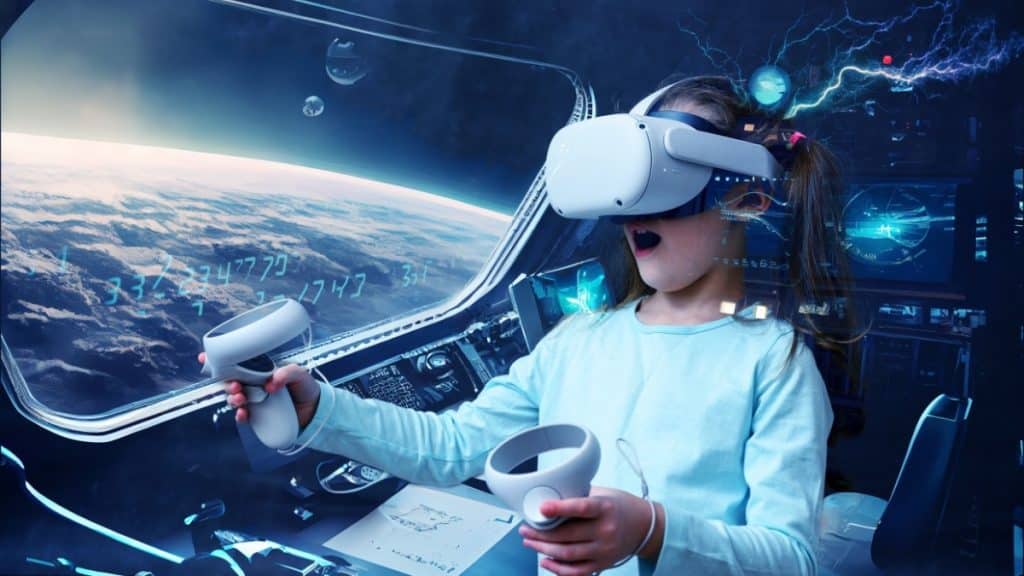In today’s fast-paced digital age, entertainment options have expanded far beyond traditional media. The internet has revolutionized how we consume content, offering a diverse range of platforms and formats to suit every taste. From streaming services and online gaming to virtual reality experiences, digital entertainment continues to evolve, pushing the boundaries of what is possible.
Streaming Services: A New Era of Media Consumption
Streaming services have become the cornerstone of modern media consumption. Platforms like Netflix, Hulu, and Disney+ offer an extensive library of movies, TV shows, and documentaries, accessible from virtually any device with an internet connection. This convenience has transformed the way we watch content, allowing us to binge-watch entire series or catch up on missed episodes at our own pace.
The rise of streaming services has also led to the proliferation of original content. Networks and studios are investing heavily in creating exclusive shows and films, often with higher production values and more creative freedom than traditional TV and film. This shift has not only given audiences more options but also provided a platform for new voices and diverse storytelling.
The Impact of Social Media on Entertainment
Social media platforms like Instagram, TikTok, and Twitter have also played a significant role in shaping digital entertainment. These platforms enable users to share content, interact with creators, and engage with a global audience. Influencers and content creators have become a powerful force in the entertainment industry, often shaping trends and driving conversations through their online presence.
TikTok, in particular, has emerged as a major player in the digital entertainment landscape. Its short-form video format encourages creativity and has given rise to viral trends and challenges. Social media has also made it easier for users to discover new music, movies, and games, further enriching the entertainment experience.
The Growth of Online Gaming
Online gaming has seen remarkable growth over the past decade. The rise of multiplayer games and eSports has created a vibrant and competitive gaming community. Titles like Fortnite, Call of Duty, and League of Legends attract millions of players and viewers worldwide, with tournaments offering substantial cash prizes and professional opportunities.
The gaming industry’s expansion has also led to innovations in gameplay and graphics. Virtual reality (VR) and augmented reality (AR) are now integral to the gaming experience, providing immersive environments and interactive elements that enhance player engagement.
Casinos: A Thriving Online Sector
The world of online casinos has also experienced significant growth, with a wide variety of options now available to players. Traditional casinos have made their way into the digital realm, offering a range of games such as slots, poker, and roulette through online platforms. This shift has made it easier for players to enjoy their favorite casino games from the comfort of their homes.
One notable trend in the online casino industry is the emergence of non Gamstop casinos. These platforms offer an alternative for players who may be restricted by Gamstop, a self-exclusion program designed to help individuals manage their gambling habits. Non Gamstop casinos provide a range of gaming options while allowing players more flexibility and freedom. However, it is important for players to choose reputable sites and gamble responsibly.
The Future of Digital Entertainment
As technology continues to advance, the possibilities for digital entertainment are virtually limitless. Emerging technologies like artificial intelligence, 5G, and blockchain are set to further enhance the way we interact with content. AI could enable more personalized recommendations and immersive experiences, while 5G technology promises faster, more reliable connections for streaming and gaming.
The integration of blockchain technology may also bring about significant changes, particularly in areas like digital ownership and cryptocurrency. These advancements will likely continue to shape the future of digital entertainment, offering new and exciting opportunities for both creators and consumers.
In conclusion, the digital entertainment landscape is constantly evolving, driven by technological advancements and changing consumer preferences. From streaming services and social media to online gaming and casinos, the way we engage with entertainment is more dynamic and diverse than ever before. As we look to the future, it’s clear that digital entertainment will continue to push boundaries and offer innovative experiences for audiences worldwide.
